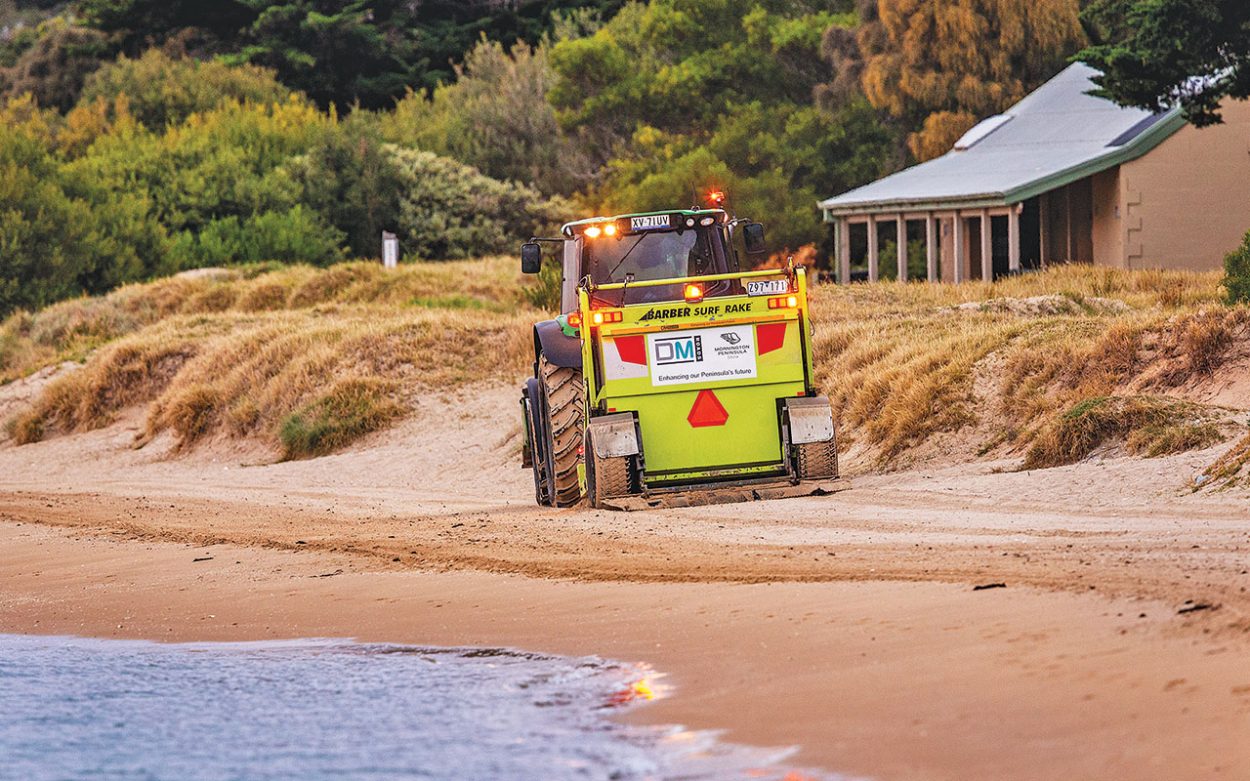THE Port Melbourne-based Happsa Group has won the cleaning contract for more than 100 Mornington Peninsula Shire-run community services. The $2.3 billion worth of shire assets include halls and maternal and child health centres, public toilets, foreshore amenity blocks and public barbecues.
Happsa will also be responsible for litter collection in “high profile precincts”. The group’s contract starts in July and could last for seven years. The contract is separate to beach cleaning which, also from July, will be done by hand instead of mechanical beach cleaners. The 12-month trial on Port Phillip beaches will cost about $733,000 (Hands up for beach cleaning, The News 12/3/24).
“Having clean community facilities is something that can sometimes be taken for granted,” the mayor Cr Simon Brooks said after the announcement that Happsa had won the facilities cleaning contract. “However, a lot of time and money is spent in ensuring community facilities present well day in and day out. Thank you to all the hard-working cleaners that have been providing this service for many years. “We are looking forward to seeing the outcomes of having a more prescriptive contract in place. The new contract sets out what is expected at each location in greater detail. This will help the contractor and council to maximise the energy spent on service delivery from day one.”
The hands-on beach cleaning will be provided by North Melbourne company Citywide under a new open spaces contract. The shire says savings expected from not using the mechanical cleaning equipment will be offset by an increase in labour costs. Beaches from Mount Eliza to Portsea previously cleaned mechanically will now be cleaned by hand as part of the trial designed to help council determine whether hand cleaning is more efficient, cost effective and better for the environment.
“Given how important our beaches are for residents and visitors, we really want to know whether there is a better way to clean them,” Brooks said. “It was disappointing to find mechanical raking may miss up to 60 per cent of rubbish items. More concerning still are indications that raking may result in plastic items being broken into smaller pieces, making it even less likely they would be picked up by the rake in the future.
“This trial will give us much better localised information on the types of rubbish left on our beaches, where it comes from and where the peak periods and hot spots are. This will enable us to refine our beach cleaning program to ensure it’s as efficient and effective as possible. We believe this is the first trial of its kind for local government.
Add A Comment




